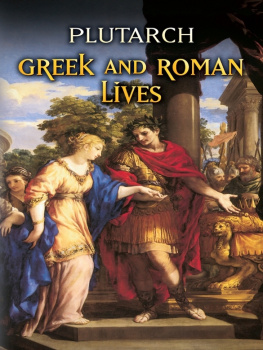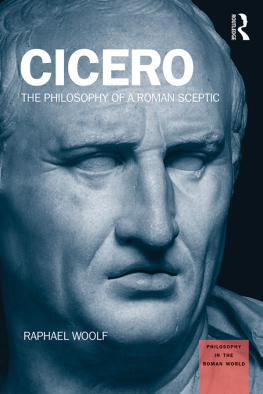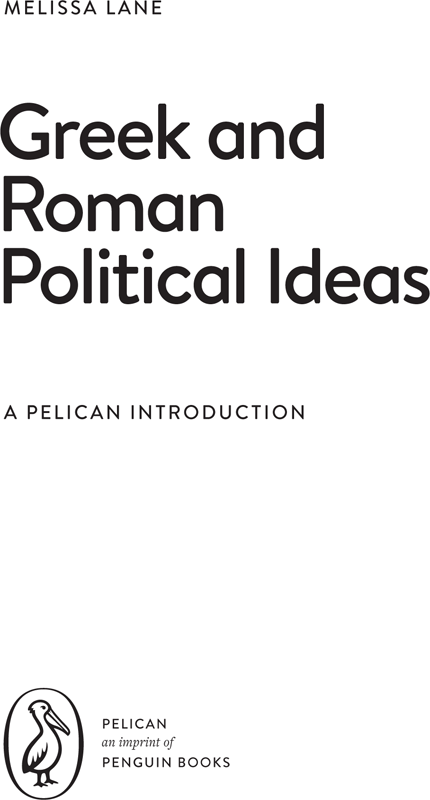PELICAN BOOKS
Published by the Penguin Group
Penguin Books Ltd, 80 Strand, London WC2R 0RL , England
Penguin Group (USA) Inc., 375 Hudson Street, New York, New York 10014, USA
Penguin Group (Canada), 90 Eglinton Avenue East, Suite 700, Toronto, Ontario, Canada M4P 2Y3 (a division of Pearson Penguin Canada Inc.)
Penguin Ireland, 25 St Stephens Green, Dublin 2, Ireland (a division of Penguin Books Ltd)
Penguin Group (Australia), 707 Collins Street, Melbourne, Victoria 3008, Australia (a division of Pearson Australia Group Pty Ltd)
Penguin Books India Pvt Ltd, 11 Community Centre, Panchsheel Park, New Delhi 110 017, India
Penguin Group (NZ), 67 Apollo Drive, Rosedale, Auckland 0632, New Zealand (a division of Pearson New Zealand Ltd)
Penguin Books (South Africa) (Pty) Ltd, Block D, Rosebank Office Park, 181 Jan Smuts Avenue, Parktown North, Gauteng 2193, South Africa
Penguin Books Ltd, Registered Offices: 80 Strand, London WC2R 0RL , England
First published 2014
Copyright Melissa Lane, 2014
The moral right of the author has been asserted
All rights reserved
Typeset by Jouve (UK), Milton Keynes
ISBN: 978-0-141-97616-7
www.pelicanbooks.com
www.penguin.com
THE BEGINNING
Let the conversation begin...
www.pelicanbooks.com
Follow the Penguin Twitter.com@penguinukbooks
Keep up-to-date with all our stories YouTube.com/penguinbooks
Pin Penguin Books to your Pinterest
Like Penguin Books on Facebook.com/penguinbooks
Find out more about the author and
discover more stories like this at Penguin.co.uk
In memory of Peter Lipton, whose unparalleled skill and enthusiasm for the communication of philosophical ideas are an enduring inspiration
Figures
FIGURE 1
A Timeline of People and Ideas
FIGURE 2
Overview of Persian Wars and Peloponnesian War
FIGURE 3
Highlights of Athenian History
FIGURE 4
Highlights of Roman History Discussed in This Chapter
Maps
MAP 1
Greece (c. 430 BCE )
MAP 2
Athens (c. 460 BCE )
MAP 3
Roman Expansion (to 30 BCE )
Politics is a spectrum of the possibilities of power. It defines relations among humans and the purposes they pursue. At one end of the spectrum is sheer exploitative domination, where the only question is, as Lenin said, Who [is able to dominate] whom? There was no single birth of the idea of domination; all too many societies in human history have been marked by it. At the other end of the spectrum of politics is a much rarer ideal: that of a regime of free and equal citizens with the power to decide and act. There is no monopoly on this practice either; it has evolved in many places and in many forms. Yet one set of ideas, from one particular era and one part of the world, has been enormously influential in delineating a vision of that ideal that continues to resonate powerfully in our own times. The ancient Greeks and Romans gave birth to a vocabulary still at work in the analyses and aspirations of many of those concerned with politics across the globe today.
One important dimension of Greek and Roman political ideas includes the claims and practices of self-government, exemplified especially in Athenian democracy and the Roman republic. What makes their ideas so rich a resource for thinking politically is that those forms of self-rule were challenges to them. Some orators and writers debunked political ideals of self-rule, of justice and equality, as illusory or exploitative; others argued that self-rule was better achieved in ethics than in politics, or in some form of fellowship distinct from the existing political community. In other words, Greek and Roman political philosophy embodies both those practices of self-government and the reactions to them. This makes it a resource not only for those who want to celebrate politics today, but also for those who are critical of it.
This book treats historical practices and philosophical reflections together, on the grounds that what makes Greek and Roman ideas such good resources for thinking is the remarkably wide spectrum of possibilities of power that they covered. It is hard to find a modern critique of Greek and Roman politics (on slavery, on gender, on elitism, on imperialism) that some particular Greek or Roman did not make first. For every incarnation of a political regime, there were critics scrutinizing its claims. Alongside the distinctive ideas of democracy and republic, Greeks and Romans also explored the limits of those political ideals of citizenship; investigated the claims of oligarchies, kingships and even tyrannies; and questioned whether any claim to embody justice in civic relations could be valid. Rather than confine the value of the Greeks and Romans to just one position on the spectrum of politics as either proudly committed to popular self-rule or philosophical critics of it, for example we can learn most by exploring the whole range of ideas that they generated.
inscribed celebrated Greek maxims on a funerary monument), from Tunis to Tarsus, in Byzantium and among its Ottoman conquerors; and also in the parts of the world where Greek and Roman ideas were brought by conquest and colonization, taken up by rulers and ruled alike, across other parts of Africa and Asia as well as Latin America.
Roots bear little visible resemblance to the plants that spring from them. Sometimes the Greeks and Romans are held to be too different from modern peoples to be of much use for current understandings. Perhaps they are of little use because they are too good for us: in this light they are sometimes celebrated as public-spirited citizens in comparison with our modern self-interested counterparts. Or perhaps it is because we are too smart or too lucky for them to be relevant any more: in this alternative perspective, liberal and representative democracy in the context of capitalism is seen as a game-changing innovation that makes ancient models of only limited use.
Both points are intertwined in Enlightenment philosopher Jean-Jacques Rousseaus critique of ancient politics as irrelevant to modern circumstances, a critique that manages to be at once nostalgic in tone and uncompromising in implication. Rousseau in 1764 issued a warning to the citizens of Geneva (of whom he was one by birth) that they should not be tempted by flattering comparisons of themselves as citizens of a republic with the peoples of classical times:
Ancient Peoples are no longer a model for modern ones; they are too alien to them in every respect [Addressing Genevans as you] You are neither Romans, nor






















